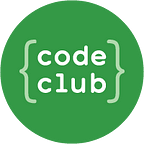Coding Unplugged 2.0
Our first blog post on Unplugged coding is one of our most popular! (You can find it here if you want to take a look).
But, it needs an update.
So, we give you — Coding Unplugged 2.0! A collection of completely offline activities — no screens, no internet!
1. Printable Scratch Blocks
Here’s the updated, free, downloadable version of Scratch blocks (for Scratch 3). Print out big ones for walls, or small ones to help kids plan their projects.
2. Binary Bracelets
This one is a favourite when we run events, especially if there are little kids there. It combines binary, crafting and sensory play! Kids can create a necklace, bracelet or keyring with their initials or full name in binary code. You could even turn this into an artwork, or maybe a secret language between two apartment buildings while you’re in isolation! Check out the code.org resource here or access a binary guide here.
3. Cooking
Ok, so not technically tech, but cooking is a great way to start thinking logically! How much of each ingredient, when to put it in the oven and more. Kids can create detailed instruction sheets, and then someone else can test them! This video highlights the pitfalls of not being thorough in your instructions!
4. Mazes
With the same plan, kids can create a maze at home — using Lego, blocks, toys, and then write instructions (or give instructions) for someone else to get through it. Get the kid creative muscles working, and then build on their logic ones too!
5. Colouring
There are a bunch of websites devoted to Unplugged activties. This UK website has a bunch of great projects to get started. Get colouring, or moving with ideas like ‘The Poor Cartographer’ — who has to create a graph where no two squares can have the same colour next to them. And CS Unplugged also has some great ideas! And not just for teachers!
6. Rube Goldberg Machine
Our long-term favourite Rube Goldberg machine is definitely this one by US band Ok-Go (you may remember them from this treadmill video). And you can easily do this at home (but less messy!). It’s an easy way for kids to start thinking about loops in computing! Hours of fun! Tinkerlab has some tips to get started here.
Good luck, stay safe, wash your hands!
Code Club HQ
